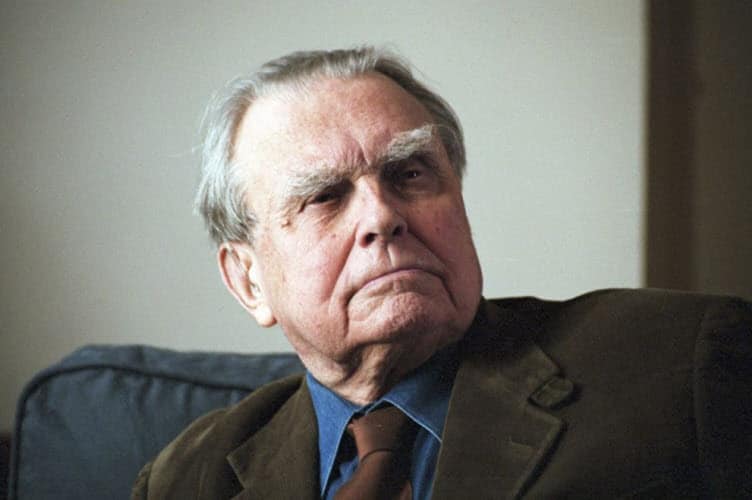Czesław Miłosz, (30 June 1911 – 14 August 2004) was a renowned Polish poet, prose writer, and essayist. In 1980, he was awarded the Nobel Prize in Literature.
Life and Career
He was born on 30 June 1911, in Seteniai, Lithuania. He studied law at Vilnius University and began his literary journey during his university years.
His literary career took off with the publication of his first poetry collection, “Poem of the Frozen Time,” in 1933. His early works reflected his deep connection to nature, his experiences of war, and his philosophical musings. The poetry showcased his mastery of language and his ability to capture complex emotions with vivid imagery.
The outbreak of World War II and the subsequent Soviet occupation of Lithuania led Miłosz to emigrate. He moved to Warsaw, Poland, where he became involved with literary and intellectual circles. His poems and essays gained recognition, both in Poland and internationally. Miłosz’s ability to convey human experience with profound insight resonated with readers around the world.
In 1951, he defected from Poland and sought political asylum in France. This decision marked a significant turning point in his life and literary career. Miłosz’s writing increasingly reflected his disillusionment with totalitarianism and his quest for personal freedom.
During his time in France, Miłosz pursued an academic career and held various teaching positions. He became a professor of Slavic languages and literature at the University of California, Berkeley, in 1961. Miłosz’s academic work allowed him to engage with students and foster a deeper understanding of Eastern European literature and culture.
Some of his notable works include “The Captive Mind,” “The Issa Valley,” and “Unattainable Earth.” Miłosz’s writing captured the complexities of human existence, delving into themes such as memory, history, spirituality, and the fragility of life. His literary achievements earned him a dedicated following and critical acclaim.
He died on 14 August 2004, in Krakow, Poland.
Award and Legacy
In 1980, he was awarded the Nobel Prize in Literature, recognizing his poetic vision and his ability to transcend cultural boundaries.
His legacy extends beyond his literary achievements. His writings inspired generations of poets and writers, and his ideas continue to shape discussions on the role of art in society. Miłosz’s commitment to truth, freedom, and the power of language serves as an enduring testament to the importance of literature in challenging times.

